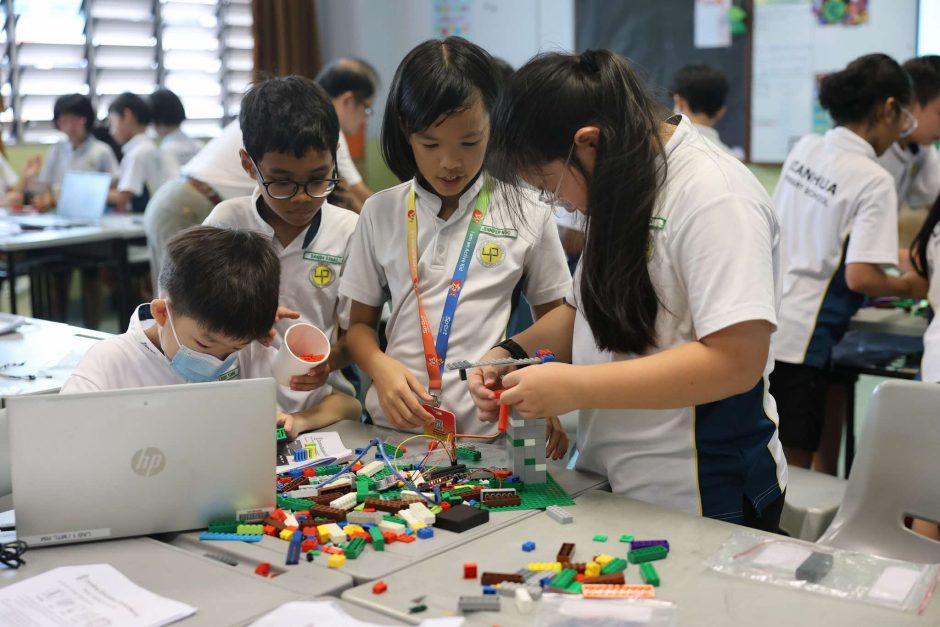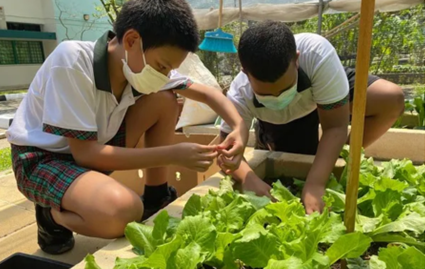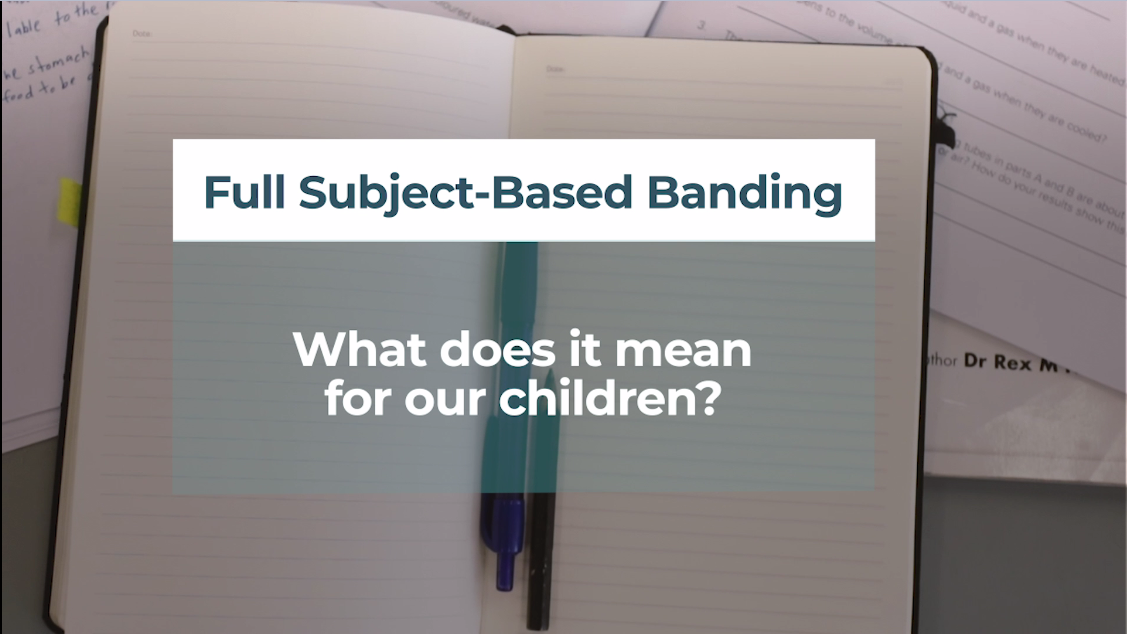When Lianhua Primary School decided to suspend a week of lessons in May this year, it dedicated the time to fun and play in line with the school motto of “Play, Passion, Purpose”.
“With the removal of mid-year examinations (for all primary and secondary schools starting last year), the school team explored how we could make use of the time to design and provide a variety of learning experiences to foster creativity, problem-solving, and hands-on learning among our students,” says Ms Pamela Kiew, Principal of Lianhua Primary School.
“It was important for our students to have the space to create, experiment and explore,” she adds. “You set them a topic, let them go ‘crazy’ within the boundaries, and they become self-empowered to seek learning in an enjoyable manner. This process of self-discovery was very important to us, and allowed us to meet our student outcomes of Passionate Learners, Critical and Creative Thinkers, Exemplary Leaders, and Confident Communicators.”
Getting ideas through learning journeys, workshops, and prototype-building
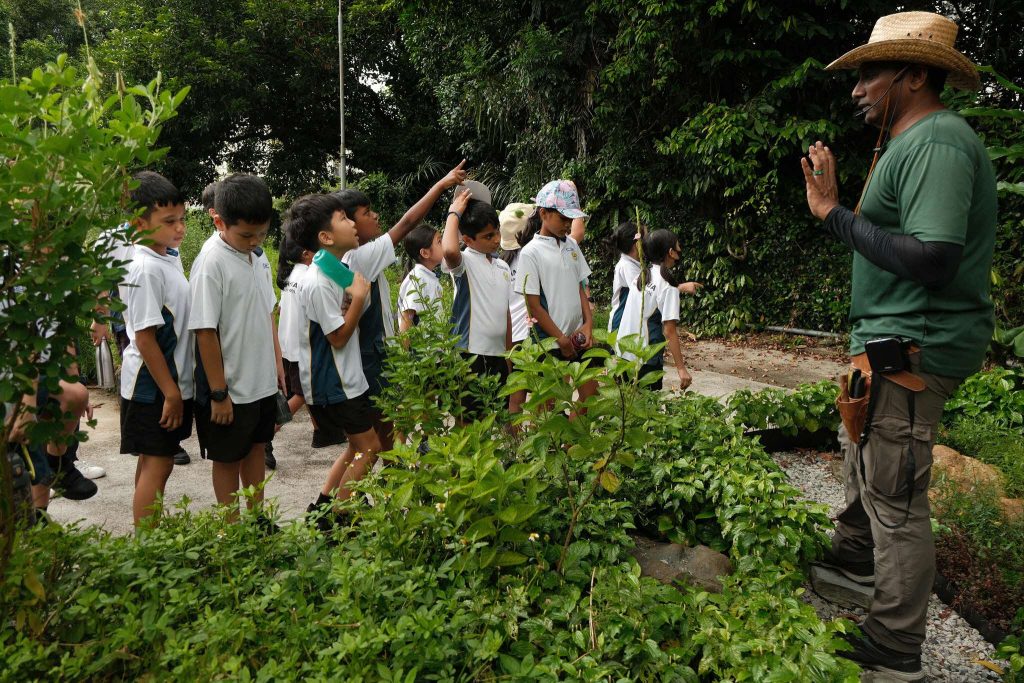
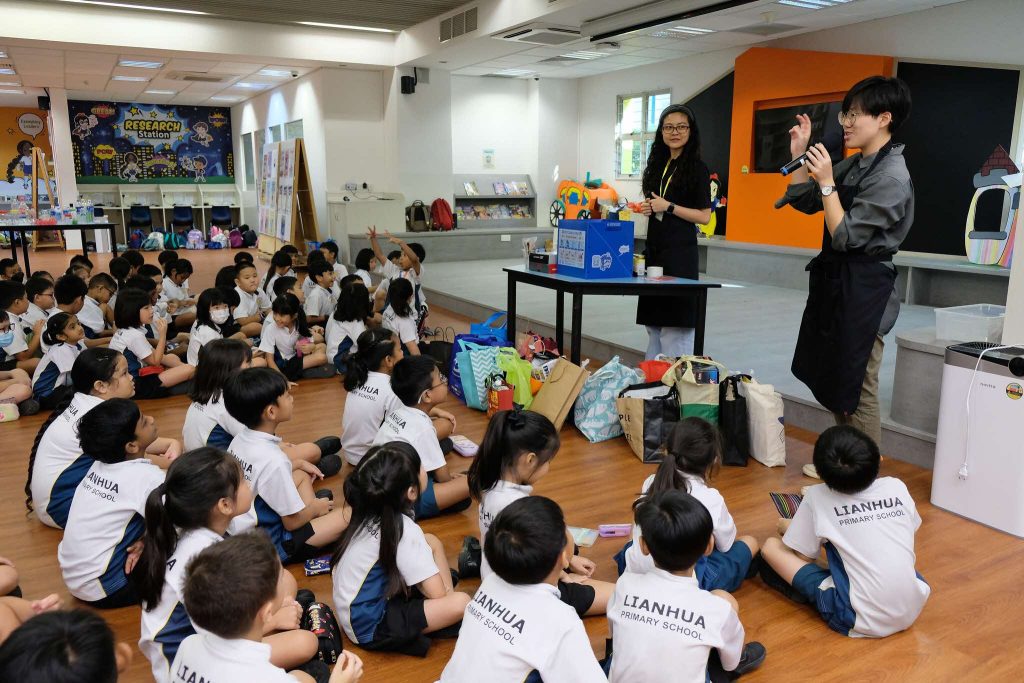
Throughout Innovation Week, Lianhua Primary had a series of programmes and activities catering specifically to each primary level. The first half of the week saw students attending workshops and going on learning journeys to places like the Edible Garden City, Science Centre and Enabling Village. Speakers from organisations such as School of X, Playeum, Ketojiak and ThrottleUp Creation also came down to speak to the students about innovation and design thinking.
Based on what they learnt from the workshops and learning journeys, students had to work in teams to create prototypes related to environmental sustainability or inclusivity. They had two days to ideate and test their creations, before presenting them on the last day of Innovation Week.
Ms Kiew explains, “With all the current conversation happening around 21st Century Competencies, it was a huge impetus for us to launch Innovation Week and to do it with dare. While subjects like Maths and Science are essential, skills like communication and adaptive thinking are often best developed through hands-on experiences like experimentation, presentations and collaborative projects.”
Upcycled musical instruments? Sounds good
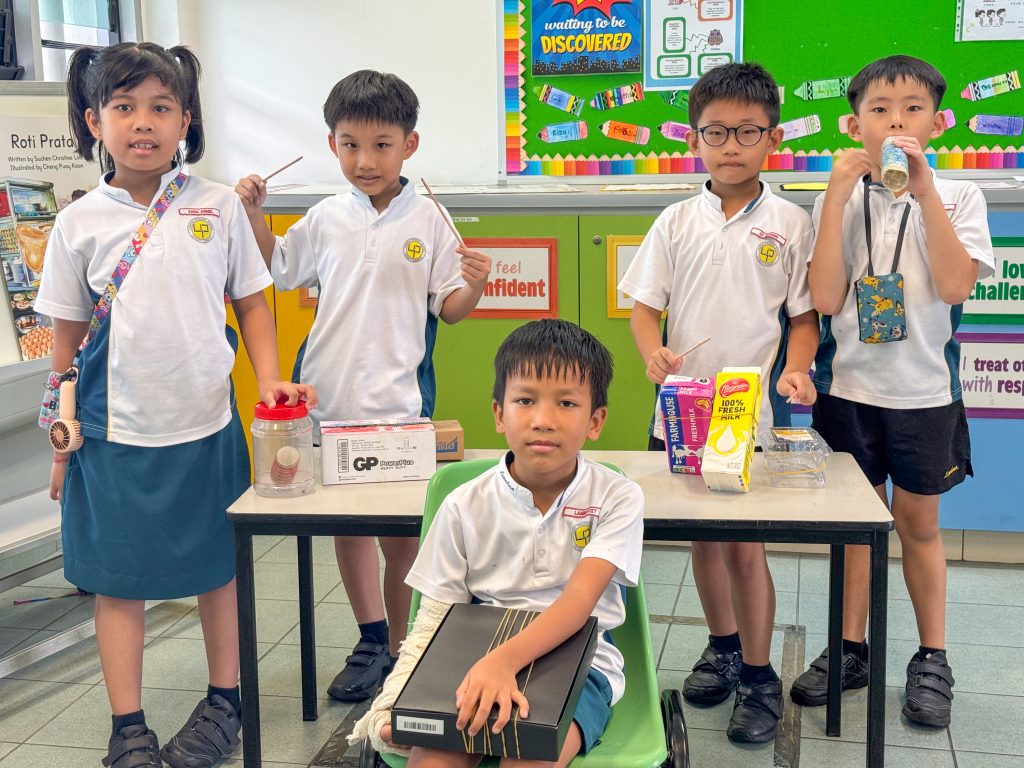
As one of the main themes for Innovation Week was environmental sustainability, the Primary 2 students were tasked with creating musical instruments out of recyclables. With their upcycled instruments, they performed a song that they learnt in Music lessons, as part of the school’s Shining Arts showcase.
How about saving water by redesigning the tap?
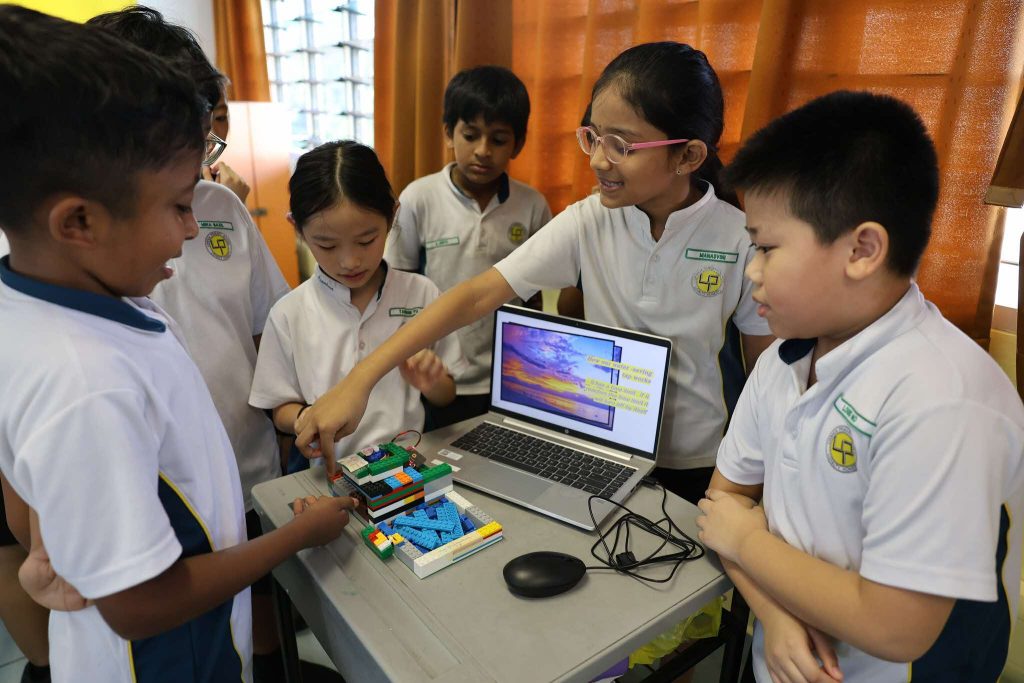
The Primary 4 students were tasked with using micro:bits (a small programmable device that allows students to learn basic coding) to build prototypes focussed on water conservation. Students Elampazhani Manasvini, Louis Ho Sze Wei and Tan Shin Yu decided to build a prototype of an automatic water tap, and coded it through micro:bits such that it would turn off after five seconds. This was to solve the issue of water wastage when people do not turn off their taps tightly after brushing or washing their hands. They shared that in the process of building their prototype, they learnt to be resilient as they had to programme and fix their micro:bits model several times to get it to work.
A sport that’s more inclusive? Play on
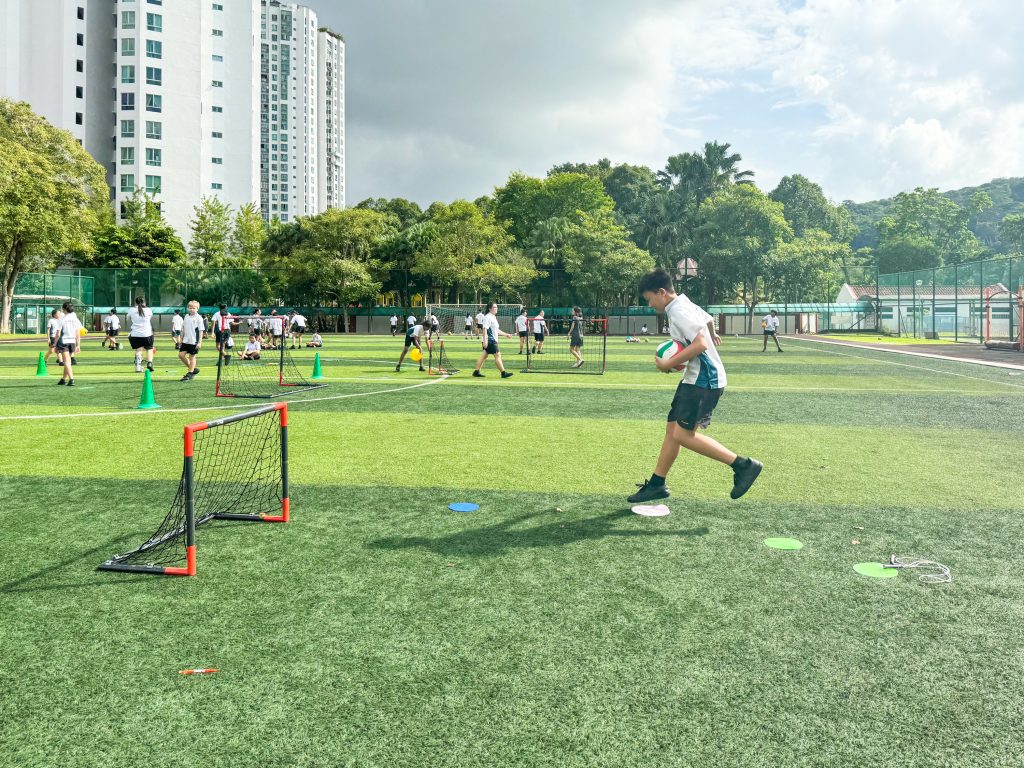
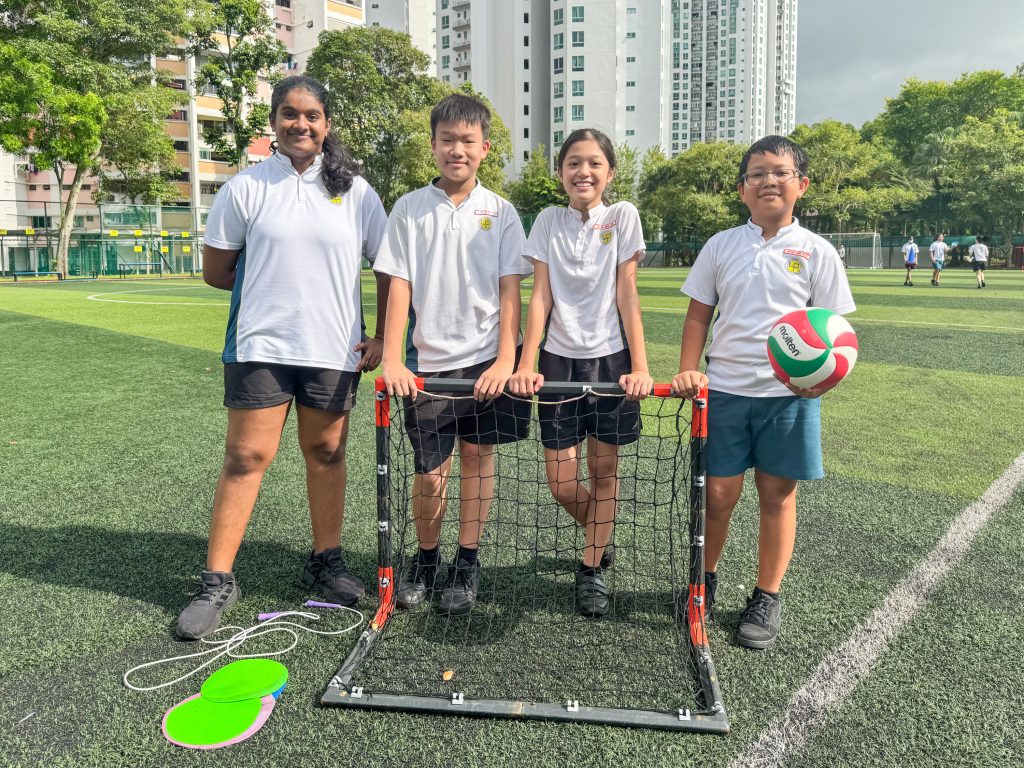
The Primary 6 students visited the Enabling Village to learn about prosthetics and the importance of inclusivity, and were tasked with inventing new games to ensure a more inclusive play experience in school for their Primary 1 juniors. Students Mudaliar Mishti, Liu Ji, Kuan Jing Ling and Nyan Linn Htet had conversations with their Primary 1 friends and observed the kinds of games they played during recess. They found that while the Primary 1s enjoy games like football, they do not actively play it during recess as they are intimidated by the older students who are much better than them. They thus came up with “The Polysport Race”, which combines hopscotch and football and is designed for the Primary 1s to score goals more easily.
Celebrating friendships and collaboration
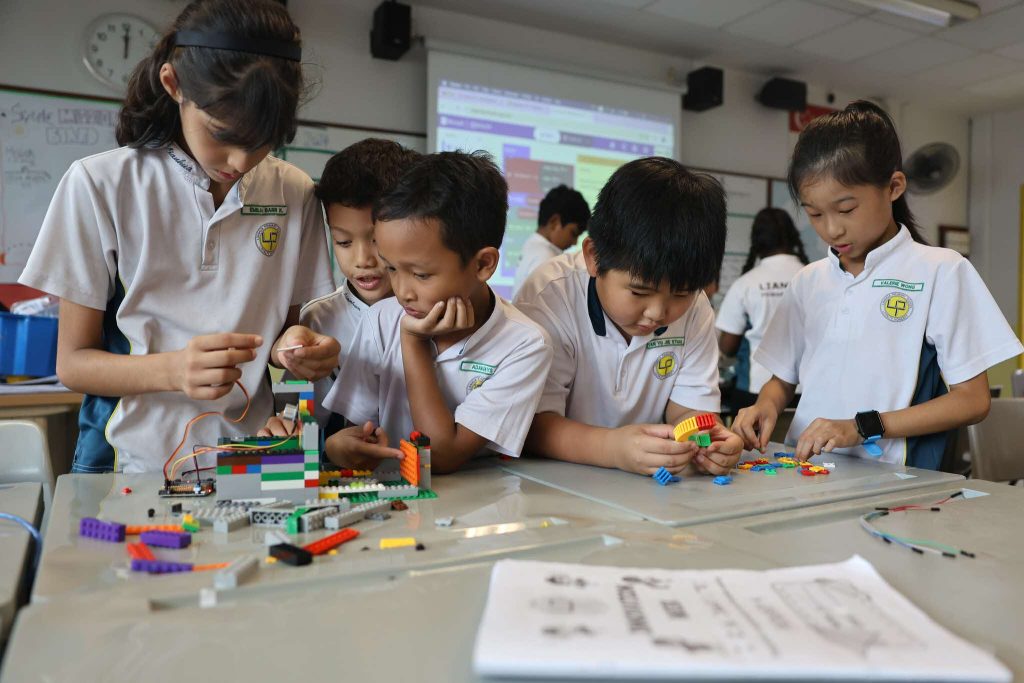
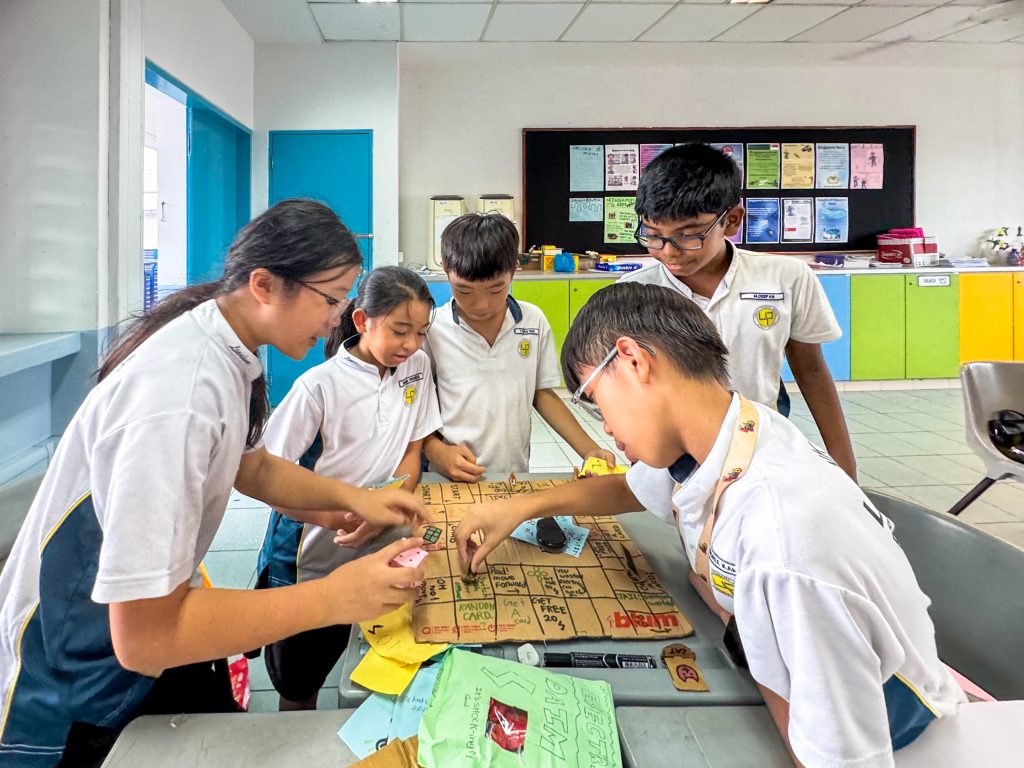
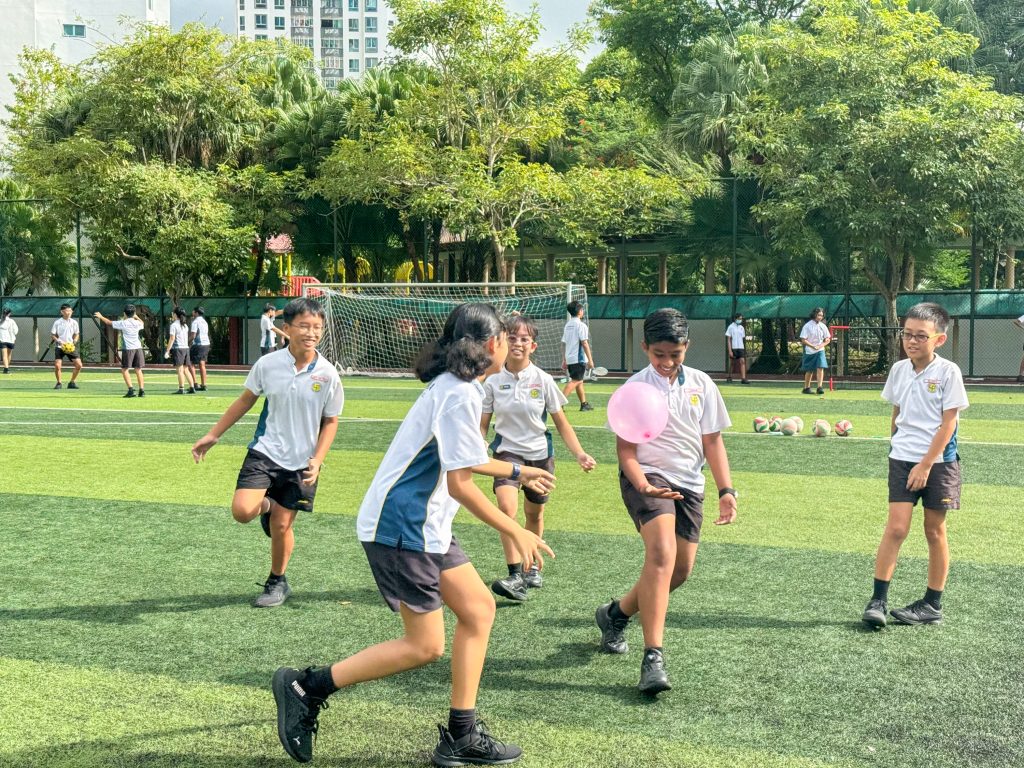
Ms Kiew shares that while Innovation Week had started out with some teething issues as students learnt to work and communicate with one another, the students later shared that they were thankful for their friends and appreciated the chance to work closely with them.
“It’s really five days of indulging in getting to know their friends well, having to communicate, learning to agree to disagree. If we want to talk about deepening friendships, this is the most authentic way to do it. It’s all these reasons why we wanted to just suspend five days of school and deepen these relationships that are built,” she says.
Mr Adib Azad, who is Head of Department of Physical Education-Co-Curricular Activities and part of Lianhua’s Innovation Week taskforce, shares that the levels of engagement observed among the students is unmatched. “I’ve never seen them so excited or engaged before,” he says. “All week, they’ve been working well in groups because they’re very focused on the task at hand.”
“In my own form class, the joy I see on their faces when they’re learning all these new things – that’s the satisfaction I get from this whole experience.”



